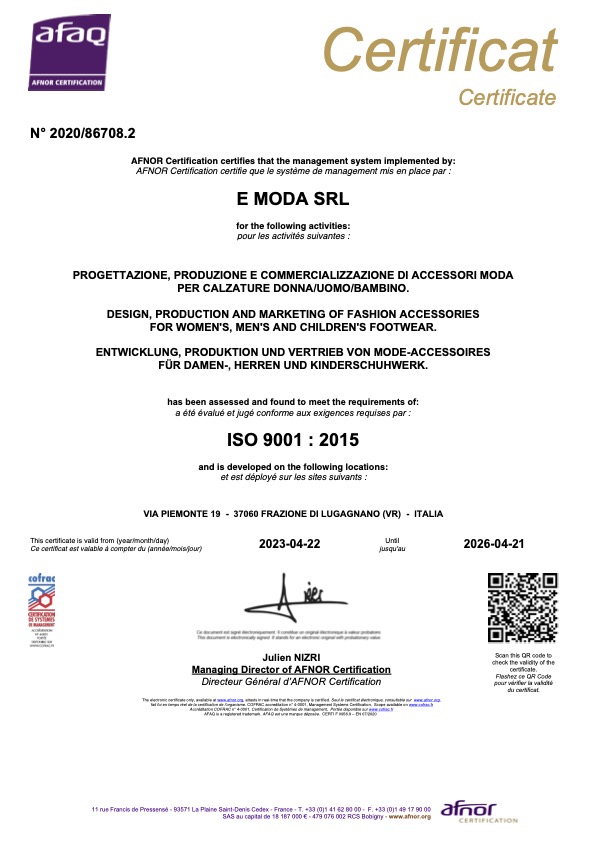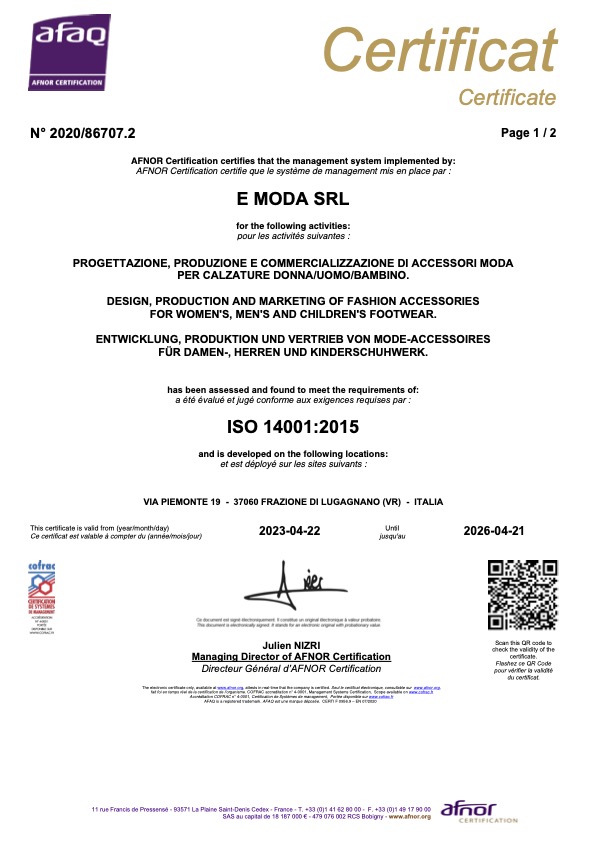Certifications
Integrated environment and quality policy
Download certificationISO 9001
The main goal of ISO 9001 is customer's satisfaction with the products and services provided, as well as continuous improvement of the company's performance, enabling the certified company to guarantee to its customers the maintainance and improvement of the quality of its own goods and services.
Strategic tool that focuses on:
- Context and stakeholder assessment
- Risk and opportunity assessment as a basis for defining appropriate actions
- Cost control
- Increase productivity
- Resource wasting reduction
ISO 9001 allows to implement a management system which focuses on:
- the customer and his full satisfaction;
- the study of the context and the resulting risks and business opportunities
- seeing the company as a set of processes in close relationship with each other and aimed at providing products that constantly meet the defined requirements;
- the importance of pursuing continuous improvement in performance.
- knowledge, management and monitoring of processes
- the ability to involve human resources
- the central role of the Top Management of the company
- the ability to measure its performance and the degree of achievement of its goals
In this context, each process receives inputs from internal / external suppliers and provides products or services to internal / external customers.


ISO 14001
- To carry out an environmental analysis, that is, to gain an in-depth understanding of the environmental aspects (emissions, resource use etc) that an organization must effectively manage;
- Understand the legislative framework and the requirements applicable to the company and assess the significance of the impacts;
- To define a Business Policy;
- To define specific environmental responsibilities;
- To define, enforce, and maintain the activities, procedures and records set by the requirements of ISO 14001.
- Controlling and maintaining regulatory compliance and monitoring environmental performance
- Reduction of resource wasting (water consumption, energy resources, etc.)
- Benefits in financing procedures and bureaucratic/administrative simplifications
- Support tool for investment decisions or technological upgrade
- Tool for creating and maintaining business value
- Tool for safeguarding corporate assets and transparency in acquisitions/mergers (risk management)
- Guaranteeing a systematic and pre-planned approach to environmental emergencies
- Better relationship and communication with the Authorities
- Improving image and business reputation
- Implementation of defined procedures for the prevention of environmental crimes
Contact us!
Fill in the form to be up-to-date at any time, or simply to receive information. We aim to respond you as soon as possible.
